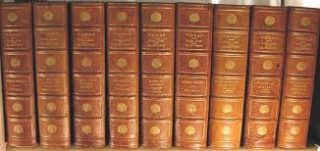
Welcome to the web page of the course European Literature! This on-going webpage is a testament of my dedication to extend the boundaries of our traditional classroom sessions. Please don’t mind the advertisements because they are inherent to this free web hosting service. In my desire to let you experience the joy and fascination these European literature masterpieces, I enjoin you to come along as we embark on this worthwhile endeavor.
“A thing of beauty is a joy forever…” ~ John Keats
Course description
This course is a comprehensive study of European Literary masterpieces from the Classical Period to the Present/Contemporary Period. It introduces students to the development of the various literary genres of the continental and island Europe. Through discussion and analysis of various literary genres and elements, this course seeks to enhance students’ awareness and appreciation of European Literature.
Course objectives
The course aims to develop among the students appreciation to the different literary pieces and respect to cultural diversities found and highlighted in each of the literary masterpieces throughout Europe.
Course intended learning outcomes (CILOs)
By the time of completion of this course, the students should be able to:
- Demonstrate critical thinking skills in understanding the breadth and depth of European literature.
- Recognize the development of the literary genres of the Europe.
- See how earlier literary works influence other later literary pieces.
- Trace the development of forms and ideas over time.
- Understand how reason and emotion interacts in the various situations presented in each of the literary masterpieces of each European country.
- Appreciate contributions and cultural insights of Europe to our modern times.
Student outcomes addressed by this course
The students will be able to:
- articulate and discuss the latest developments in the specific field of practice.
- use the techniques, skills, and modern technology necessary for the practice of the profession.
- apply knowledge of contemporary issues and principles of ethics relevant to professional practice.
- demonstrate a service orientation in one’s profession.
- function effectively as an individual, and as a member or leader in diverse teams and in multidisciplinary settings.
- communicate effectively in oral and in written English.
- recognize the need for, and prepare to engage in lifelong learning.
European literature Course topics
Prelim Period (Weeks 1–6)
Review of Literary Concepts: What is Literature, Literary standards, Literary approaches. Importance of Literature. Divisions of Literature. Literary Genres, Introduction to European Literature. Classical Literature. Greek Literature: Oedipus Rex by Sophocles, Roman Literature: Aeneid by Virgil.Film Showing: The Immortals.
Midterm Period (Weeks 7–12)
Medieval Literature. English Literature: Canterbury Tales by by Sir Geoffrey Chaucer, Italian Literature: Divine Comedy by Alighieri Dante, Sonnet to Laura by Francesco Petrarch, French Literature: The Song of Roland, Renaissance Literature: Sonnet XXIII by William Shakespeare, Hamlet by William Shakespeare. Film Showing: Hamlet.
Final Period (Weeks 13–18)
Period of Enlightenment: Elegy Written in the Country Churchyard by Thomas Gray, Gulliver’s Travels by Jonathan Swift, Period of Romanticism: Ode to the West Wind by Percy Bysshe Shelley, Ode to Psyche by John Keats, She Walks in Beauty by Lord Byron. Film Showing: Gulliver’s Travels. The Modern Period: Germany: Metamorphosis by Franz Kafka, Russia: Crime and Punishment by Fyodor Dostoyevsky, Poland: Heart of Darkness by Joseph Conrad, Norway: An Enemy of the People by Henrik Ibsen.
Course references
The references listed here are mostly available in the library of TIP Quezon City. Although listed, I am not requiring you to purchase them. Avail the services of the library as you are paying such being part of your miscellaneous fees. You may likewise consult other references which you deem useful and helpful in your quest to learn things about European literature.
- Reyes, Dinia Delfina S. (2011). World Literature:Literacy Gems of the East and West. Manila, Philippines: Rex Bookstore.
- Sanyal, Lopa. (2011). Classics in English Literature. New Delhi, India: Discovery Publishing House.
- Brazalote, Tumoroh. (2011). Readings in World Literature. Mandaluyong City: Books Atbp. Publishing.
- Cruz, Jesus Q.,et.al. (2010). A Treasury of World Literature. Mandaluyong City: Books Atbp. Publishing.
- www.literature.org
- www.hbvk.com/ct/101/european-lit.htm
- www.gutenberg.org
- www.bartleby.com